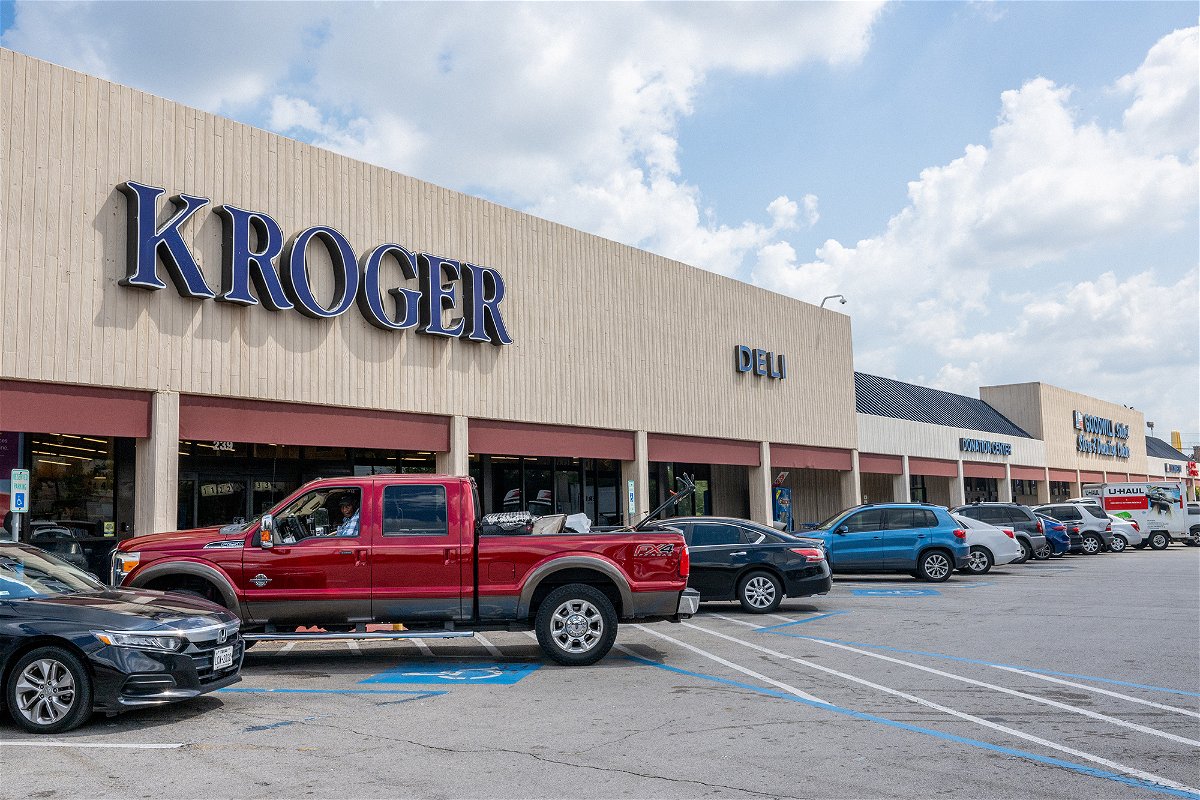US government sues to block largest supermarket merger in history

By Nathaniel Meyersohn, CNN
New York (CNN) — The Federal Trade Commission on Monday sued to block the $25 billion deal between Kroger and Albertsons, alleging the largest supermarket merger in US history would lead to higher prices, store closures and job losses.
The merger, announced in 2022, sought to combine the fifth and tenth largest retailers in the country. The companies own dozens of chains, including Safeway, Vons, Harris Teeter and Fred Meyer.
But the proposed merger came as food prices have skyrocketed. Americans are spending 26% more on groceries since 2020, according to the Bureau of Labor Statistics, and the highest portion of their income on food than any point over the past 30 years.
The FTC, in a statement, said the merger would eliminate competition in the grocery industry, which could drive costs even higher.
Kroger (KR) and Albertsons, which both employ mostly unionized workforces, said they wanted to merge to be more competitive against non-union giants such as Walmart, Amazon and Costco. The grocers are also facing increased pressure from Aldi, the fast-growing German discount supermarket chain.
The merger would accelerate “our position as a more compelling alternative to larger and non-union competitors,” Kroger CEO Rodney McMullen said when the deal was announced.
The two companies have a combined 710,000 workers, nearly 5,000 stores and more than $200 billion in sales. The companies argued that they will be able to use $500 million in cost savings from the deal to reduce prices for shoppers and tailor promotions and savings.
But the FTC in its lawsuit was skeptical of the claim.
“This supermarket mega merger comes as American consumers have seen the cost of groceries rise steadily over the past few years. Kroger’s acquisition of Albertsons would lead to additional grocery price hikes for everyday goods, said Henry Liu, director of the FTC’s Bureau of Competition.
Unions, small grocers and a coalition of Democrats and Republicans on Capitol Hill, including Democrat Elizabeth Warren of Massachusetts and Republican Mike Lee of Utah, also strongly opposed the merger from the start.
Kroger and Albertsons criticized the FTC’s decision.
A Kroger spokesperson said in a statement that the FTC’s move “will actually harm the very people the FTC purports to serve: America’s consumers and workers.”
The FTC’s suit “only strengthens larger, non-unionized retailers like Walmart, Costco and Amazon by allowing them to further increase their overwhelming and growing dominance of the grocery industry,” the spokesperson said.
Kroger said it will appeal the FTC’s decision.
FTC Chair Khan skeptical of divestitures
To address antitrust concerns that the merger would stifle competition in local markets where their stores overlap, Kroger and Albertsons agreed to sell roughly 400 stores to C&S Wholesale Grocers, the owner of Piggly Wiggly and other brands.
C&S has also provisionally agreed to purchase more than 200 additional stores if the proposed deal received regulatory pusback.
But the FTC said the divestiture proposal was a “hodgepodge of unconnected stores, banners, brands, and other assets that Kroger’s antitrust lawyers have cobbled together” and would not be a “successful competitor against a combined Kroger and Albertsons.”
Albertsons’ $9 billion tie-up with Safeway in 2014 loomed over regulators, including FTC chair Lina Khan.
To win approval for that deal from antitrust regulators, Albertsons and Safeway agreed to sell 168 of their stores to buyers approved by the FTC.
With the FTC’s blessing, Haggen, a small supermarket chain in the Northwest with just 18 locations, bought 146 of the former Albertsons and Safeway stores.
But Haggen struggled to manage the stores. Less than a year later, Haggen filed for bankruptcy and closed some locations.
Khan has been skeptical of divestitures as an effective tool to promote competition. She criticized the FTC’s handling of Albertsons’ deal with Safeway, pointing to it as a prime example of the limitations of divestitures.
In a 2017 law review article she wrote prior to helming the FTC, Khan said the agency’s approval of the divestiture to Haggen was “[hard] to fathom” and a “spectacular” failure.
“Even a casual observer could have predicted that Haggen would have great difficulty expanding its storefronts,” Khan said. “The skeptics have been proven right.”
Under Khan, the FTC has also launched landmark antitrust suits against Amazon and other tech giants.
The-CNN-Wire
™ & © 2024 Cable News Network, Inc., a Warner Bros. Discovery Company. All rights reserved.